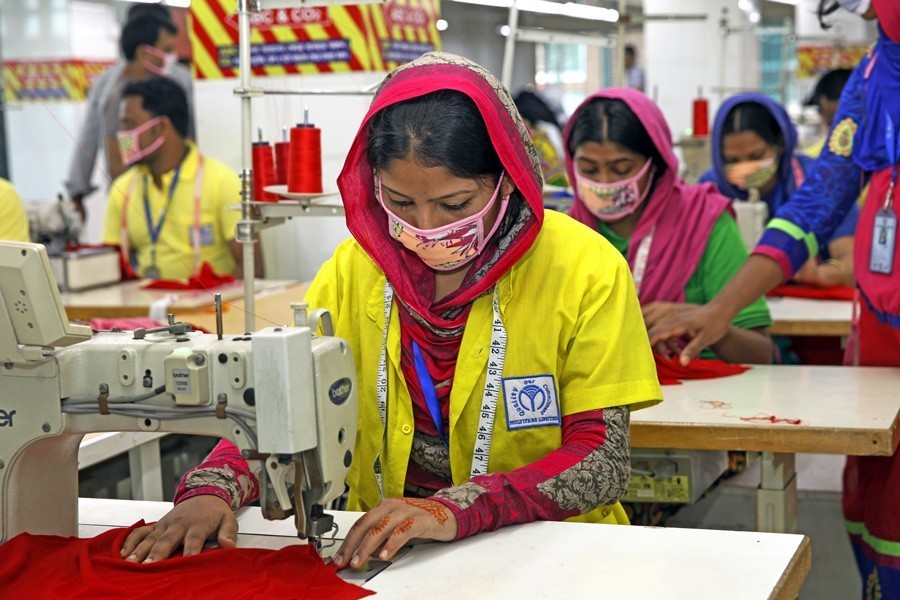The textile and garment exporters have demanded of the government to provide them again with financial support so that they could pay three months of wages and solve their financial setback created due to the second wave of Covid-19 pandemic.
In a joint letter to finance minister AHM Mustafa Kamalon Sunday,the three trade bodies in the apparel sector made the plea to help them pay the festival allowance and wages for a period from April to June this year.
The trade bodes are Bangladesh Garment Manufacturers and Exporters Association (BGMEA), Bangladesh Knitwear Manufacturers and Exporters Association (BKMEA) and Bangladesh Textile Mills Association (BTMA).
The apparel sector leaders sought the fund with the same conditions as tagged with the stimulus package last year for the payment of workers' wages. They, however, did not mention about any amount.
In March last year, the government had announced a package worth Tk 50 billion with 2.0 per cent service charge for the export-oriented industries to pay the workers' wages for three months which was later extended by one more month to offset the impact of coronavirus outbreak.
The sector received a total of Tk 105 billion under the package beginning from April 2020.
"Due to the global coronavirus situation, the RMG sector has been passing through a devastating time. A good number of factories had to shut down," reads the letter, signed by the presidents of the trade bodies.
Getting payments from a number of renowned buyers have become uncertain as they declared themselves bankrupt while the factories were suffering from severe financial crisis because of cancellation or suspension of work orders and deferred payments, they said.
Moreover, the factories were forced to receive work orders even below the production cost or with minimum or less profit margin to sustain and be competitive, they explained.
Citing last year's package, they said that it would be difficult for the factory owners to pay festival allowances and wages to their workers before Eid-ul-Fitr.
When asked, Center for Policy Dialogue research director Dr Khondaker Golam Moazzem said following the plea from the factory owners, the government allowed operation of textile and RMG factories during the ongoing lockdown while others remained shut, especially shops and small and medium enterprises.
He expected that there should be no crisis of fund flow and factories should be able to pay workers' wages and festival allowances ahead of the Eid as there were work orders, and the production in factories were going on.
Besides, the factories have started receiving the payments against the shipped goods though late, he said. However, it has been assured that they would get the payments.
Moreover, they can get fund from their respective banks, he said, adding there was no reason to be concerned for the factories that were in operation.
Also, the wages and festival allowance payments are the regular phenomenon, he said, adding that the entrepreneurs estimate the costing taking these into consideration, while the brands and buyers also consider workers' wages and other facilities while placing orders.
The economic activities in European Union and USA are improving while unemployment rate is declining in USA, he said, adding that the factory situation was also in a good condition compared to the previous situation.
"We think it is possible for the factories to pay the workers' wages through their income," Mr Moazzem said.
The government despite its resource constraints has always given priority to this sector, he added.
Other sectors especially the shops and other entities which remained closed and did not get any government incentive during the ongoing lockdown should be given priority in providing any financial support, he noted.
These entities need more support on priority basis, he added.


